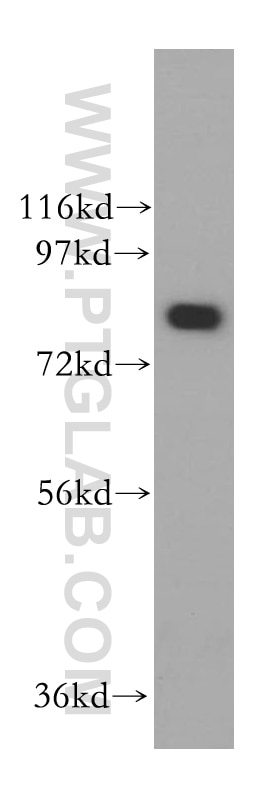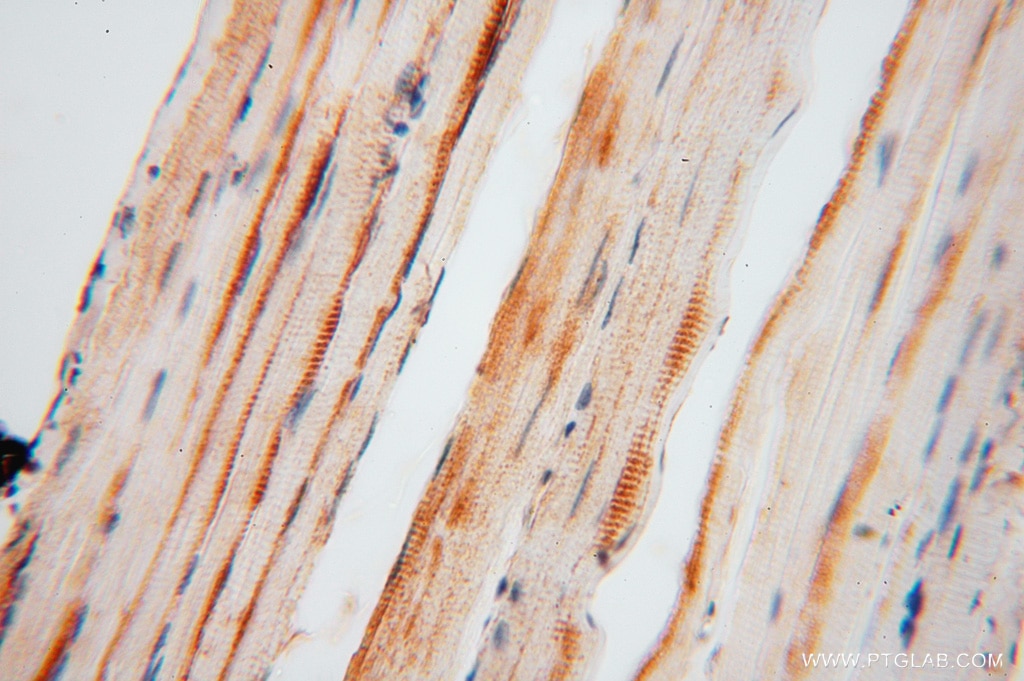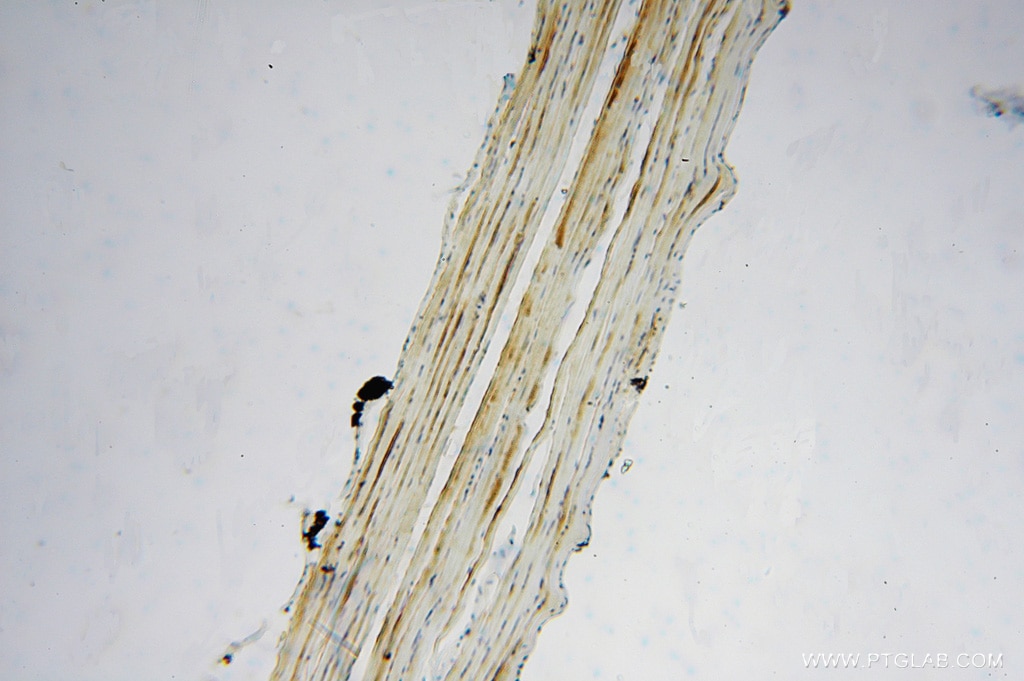FEM1A Polyklonaler Antikörper
FEM1A Polyklonal Antikörper für WB, IHC, ELISA
Wirt / Isotyp
Kaninchen / IgG
Getestete Reaktivität
human
Anwendung
WB, IHC, ELISA
Konjugation
Unkonjugiert
Kat-Nr. : 15169-1-AP
Synonyme
Geprüfte Anwendungen
| Erfolgreiche Detektion in WB | U-937-Zellen |
| Erfolgreiche Detektion in IHC | humanes Skelettmuskelgewebe Hinweis: Antigendemaskierung mit TE-Puffer pH 9,0 empfohlen. (*) Wahlweise kann die Antigendemaskierung auch mit Citratpuffer pH 6,0 erfolgen. |
Empfohlene Verdünnung
| Anwendung | Verdünnung |
|---|---|
| Western Blot (WB) | WB : 1:200-1:1000 |
| Immunhistochemie (IHC) | IHC : 1:20-1:200 |
| It is recommended that this reagent should be titrated in each testing system to obtain optimal results. | |
| Sample-dependent, check data in validation data gallery | |
Produktinformation
15169-1-AP bindet in WB, IHC, ELISA FEM1A und zeigt Reaktivität mit human
| Getestete Reaktivität | human |
| Wirt / Isotyp | Kaninchen / IgG |
| Klonalität | Polyklonal |
| Typ | Antikörper |
| Immunogen | FEM1A fusion protein Ag7357 |
| Vollständiger Name | fem-1 homolog a (C. elegans) |
| Berechnetes Molekulargewicht | 74 kDa |
| Beobachtetes Molekulargewicht | 74 kDa |
| GenBank-Zugangsnummer | BC004988 |
| Gene symbol | FEM1A |
| Gene ID (NCBI) | 55527 |
| Konjugation | Unkonjugiert |
| Form | Liquid |
| Reinigungsmethode | Antigen-Affinitätsreinigung |
| Lagerungspuffer | PBS with 0.02% sodium azide and 50% glycerol |
| Lagerungsbedingungen | Bei -20°C lagern. Nach dem Versand ein Jahr lang stabil Aliquotieren ist bei -20oC Lagerung nicht notwendig. 20ul Größen enthalten 0,1% BSA. |
Hintergrundinformationen
FEM1A, also named as Protein fem-1 homolog A-A, is a 654 amino acid protein, which Belongs to the fem-1 family. FEM1A is highly expressed in adult heart and skeletal muscle. FEM1A is a Probable component of an E3 ubiquitin-protein ligase complex, in which it may act as a substrate recognition subunit. FEM1A may participate in antiinflammatory signaling via its interaction with PTGER4.Furthermore, Fem1aexpression is down-regulated in rhabdomyosarcoma cells suggesting that the FEM1A gene may be involved in muscle differentiation or be at least a marker of abnormal differentiation in rhabdomyosarcoma. Knowing that a molecular weight of 76 kDa is predicted for human FEM1A, but phosphorylated FEM1A is 95-100 kDa (PMID: 19406122).
Protokolle
| PRODUKTSPEZIFISCHE PROTOKOLLE | |
|---|---|
| WB protocol for FEM1A antibody 15169-1-AP | Protokoll herunterladen |
| IHC protocol for FEM1A antibody 15169-1-AP | Protokoll herunterladenl |
| STANDARD-PROTOKOLLE | |
|---|---|
| Klicken Sie hier, um unsere Standardprotokolle anzuzeigen |




